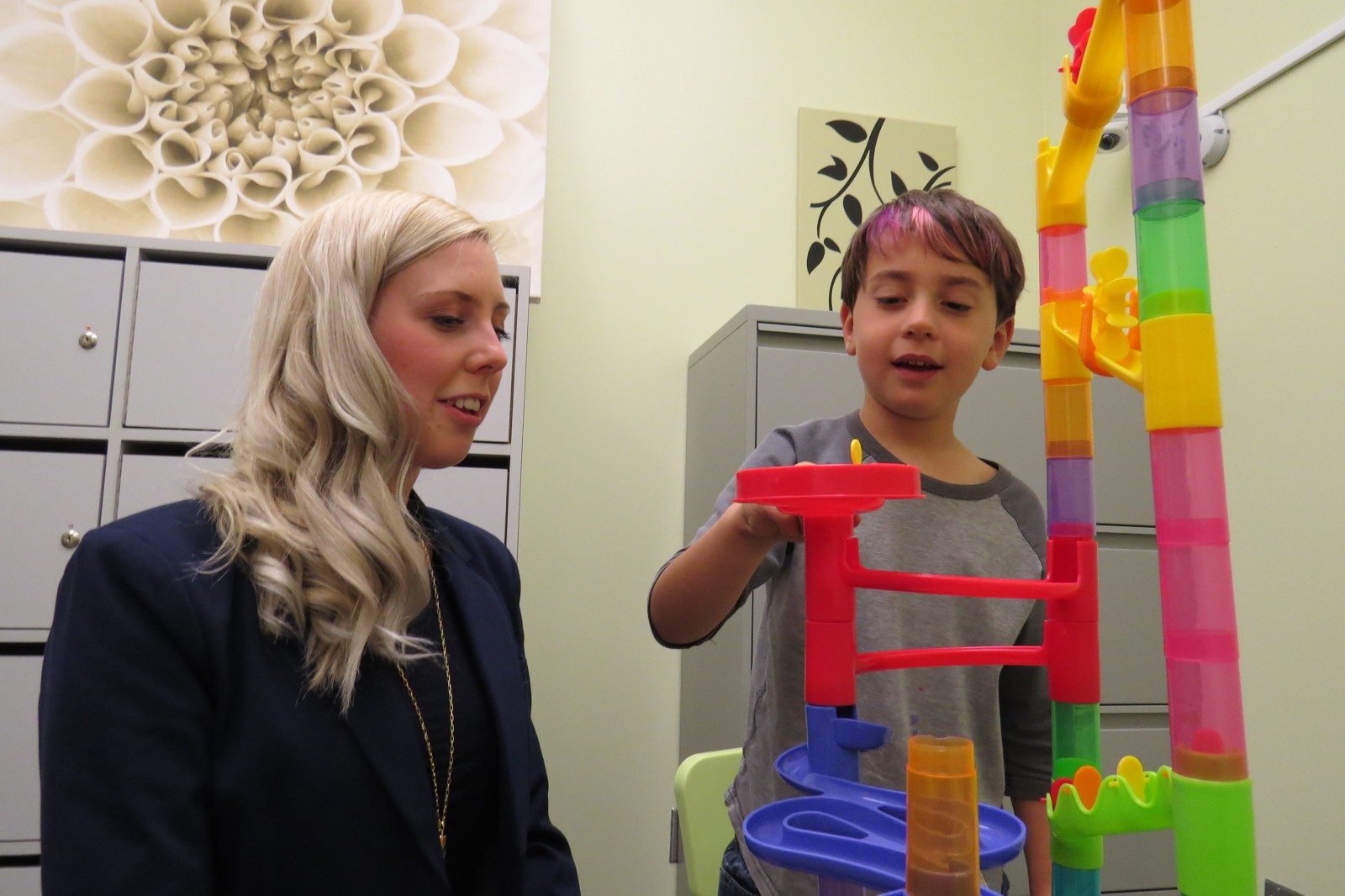How accurate are you in being able to estimate your child’s ability to plan for the future? It’s a question Brock University Assistant psychology Professor Caitlin Mahy and master’s student Tessa Mazachowsky are aiming to find out.
The two are researching the development of children’s abilities to think, plan and remember things for the future.
Mahy’s earlier research explored when and how prospective memory develops in children. “Prospective memory” is a process in which we remember to carry out a plan we made earlier, such as going to a friend’s birthday party.
Now, she and Mazachowsky want to add parental perceptions into the mix.
“This is the first study to look at children’s future thinking from the parents’ perspective,” says Mahy.
The duo are seeking approximately 200 parents — mothers, fathers or both — to fill out a questionnaire asking them to rate how well their children perform tasks in five categories of future thinking:
- Prospective memory: how well does your child remember to do things in the future?
- Planning: how good is your child at making a plan and following through with that plan?
- Saving: can they save money in their piggy bank? Do they save a picture to show Grandma later?
- Delayed gratification: do they wait for two cookies later, or take the one cookie they are offered now?
- Future planning: are they able to imagine themselves in future scenarios and plan accordingly? i.e. can they imagine that they need a tent, blanket, cooking materials, etc. for a camping trip?
Of the 200 parents, the researchers would like at least 80 to bring their children to Brock so that the children can perform future thinking, planning and prospective memory tasks.
“We’re looking to compare the parents’ answers on the questionnaire to the child’s actual behavioural performance on the tasks, so that’s why we’re going to be bringing some of the parents and children in,” says Mazachowsky.
Mahy explains that, for those parents choosing just to do the questionnaire, the researchers will focus on the parents’ consistency in answering questions from the five different categories of future thinking.
Mahy says it’s important for researchers to know if parents correctly gauge their children’s future thinking skills.
A parent who has an accurate picture of their child’s skills will know if the child might need extra encouragement and support for developing memory and planning skills, says Mahy.
The really critical thing in becoming an independently functioning adult is to plan for the future and remember to do things on our own.
“Maybe your child is a little bit behind with understanding saving so maybe it’s a good time to start introducing concepts of savings and allowance,” she says. “Or maybe it’s way too early. You give your child a quarter and they’re going to want to spend it immediately; they might not have that ability yet.”
Mahy explains that knowing how memory and planning develop in children is vital to laying a good foundation for their future.
“The really critical thing in becoming an independently functioning adult is to plan for the future and remember to do things on our own: we might have to remember to take medications, we have to meet with a friend after work,” she says. “The impact of forgetting in some areas can be quite serious.”
“I think it is really important to understand how this develops in children and at what stages of development forgetting is ‘normal’ and at what stage this may become a concern,” she explains.
The duo aims to make the questionnaire a standardized tool that other researchers can use in their investigations of future thinking.
To participate in the research, or for more information, contact: Tessa Mazachowsky, tm10nt@brocku.ca









